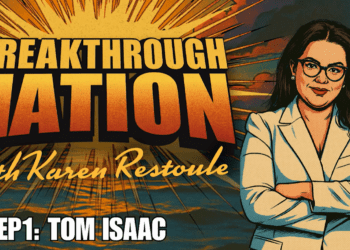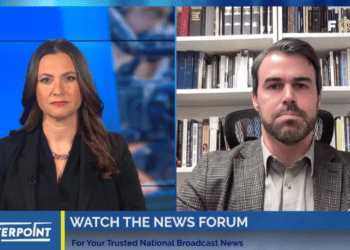Writing in the National Post, MLI Managing Director Brian Lee Crowley argues that a recent European court decision that forces Google to eliminate links from Internet searches is obscuring our duty to remember.
This ‘right to be forgotten’, Crowley says, is a misguided principle that will conceal our responsibility to confront the errors of the past.
“History does not belong only to those who participated in its making”, Crowley writes. “It belongs to all of us, who are its inheritors”.
Crowley’s column is an entry into a week-long series the Post is doing on the right to be forgotten.
Brian Lee Crowley, June 26, 2014
A right inevitably requires a corresponding duty, and the newfangled “right to be forgotten” is no exception. Your right to speak freely, to assemble or to vote is made real by everyone else’s duty not to prevent you from doing so. How about the right to be forgotten? What is the duty that corresponds to this “right”?
The right to be forgotten came about as a result of a recent decision of the European Court of Justice (ECJ). A Spanish man had complained to the court that events from his past involving long-ago debt problems still turned up in Google searches of his name. He had cleaned up his act, so to speak, and he was embarrassed by the constant revelation of his feckless past. He asked the ECJ to vindicate his right to be forgotten by ordering Google to prevent its search engine from turning up the offending links to press reports and legal notices about his past.
It is very important to underline that no real harm, other than some slight embarrassment, had been established. No one is alleging that the information in question is malicious, libellous or wrong. On the contrary: The links that Google kicked up in its search for the Spanish gentleman’s name are a factual record of past events.
To everyone’s astonishment, the court ruled in the complainant’s favour. People have the right to be forgotten, at least as far as Google’s search engine is concerned, for it is Google that is placed in the unfair position of being judge and jury in what information is sufficiently old, outdated or embarrassing enough to warrant suppression.
This has had two predictable consequences. According to Britain’s Daily Telegraph, Google Europe is now getting a link suppression request every seven seconds under this newfound right. Disgraced politicians and convicted paedophiles are just some of the unsavoury characters who are seizing the change to reinvent themselves by demanding to have links revealing their misdeeds “forgotten.”
And Google, which has no capacity to adjudicate claims, will likely be obliged to acquiesce in virtually all demands to have links deleted. For if the company doesn’t delete such links and a government privacy czar in any European country finds that it was wrong not to, Google expose itself to serious fines.
This ruling threatens to change the Internet from a neutral platform, on which all the knowledge of humanity might eventually be made available, to a highly censored network, in which, every seven seconds, another person may unilaterally decide that they have a right to be forgotten and to have the record of their past suppressed.
That brings me back to the idea of the duty, which corresponds to the right to be forgotten. If people have such a right, logically, it must mean that the rest of us have a duty to forget. That is absurd. We have a duty to remember, not to forget; a duty not to let the past go, simply because it is inconvenient or embarrassing.
It is those who have lived in societies where the state arrogated to itself the power to remake the historical record who understand this best of all. In the appropriately named Book of Laughter and Forgetting, one of Czech writer Milan Kundera’s characters who’s caught up in the struggle against totalitarianism cries out that, “the struggle of man against power is the struggle of memory against oblivions.”
Kundera writes movingly of his own guilt for the mistakes of the past, for he was one of the young, passionate Czechoslovakians who welcomed the communists’ rise to power in 1948. Then came the disillusionment, including the periodic purges and removal of the disgraced and discredited from the historical record.
Suddenly, according to Kundera, young radicals such as himself, “had the strange feeling of having sent something into the world, a deed of their own making, which had taken on a life of its own, lost all resemblance to the original idea and totally ignored the originators of the idea. So those young, intelligent radicals started shouting to their deed, calling it back, scolding it, chasing it, hunting it down.”
But their duty was not to erase the record of their guilt, to pretend they had not been mistaken or to expiate their sins by forgetting. On the contrary, it was their duty to remember, to confront the past, to be the guardians of what would otherwise have been lost, so that it could, in due course, be recovered.
Our duty in the wake of the ECJ decision is to resist the cleansing of the historical record, whatever the alleged justification. History does not belong only to those who participated in its making. It belongs to all of us, who are its inheritors. The court’s decision will, in time, prove itself impractical. Much more importantly, people will come to realize that it was deeply mistaken in principle. Provided, of course, we don’t forget why memory matters.
Brian Lee Crowley is the managing director of the Macdonald-Laurier Institute, an independent, non-partisan public policy think tank in Ottawa.




